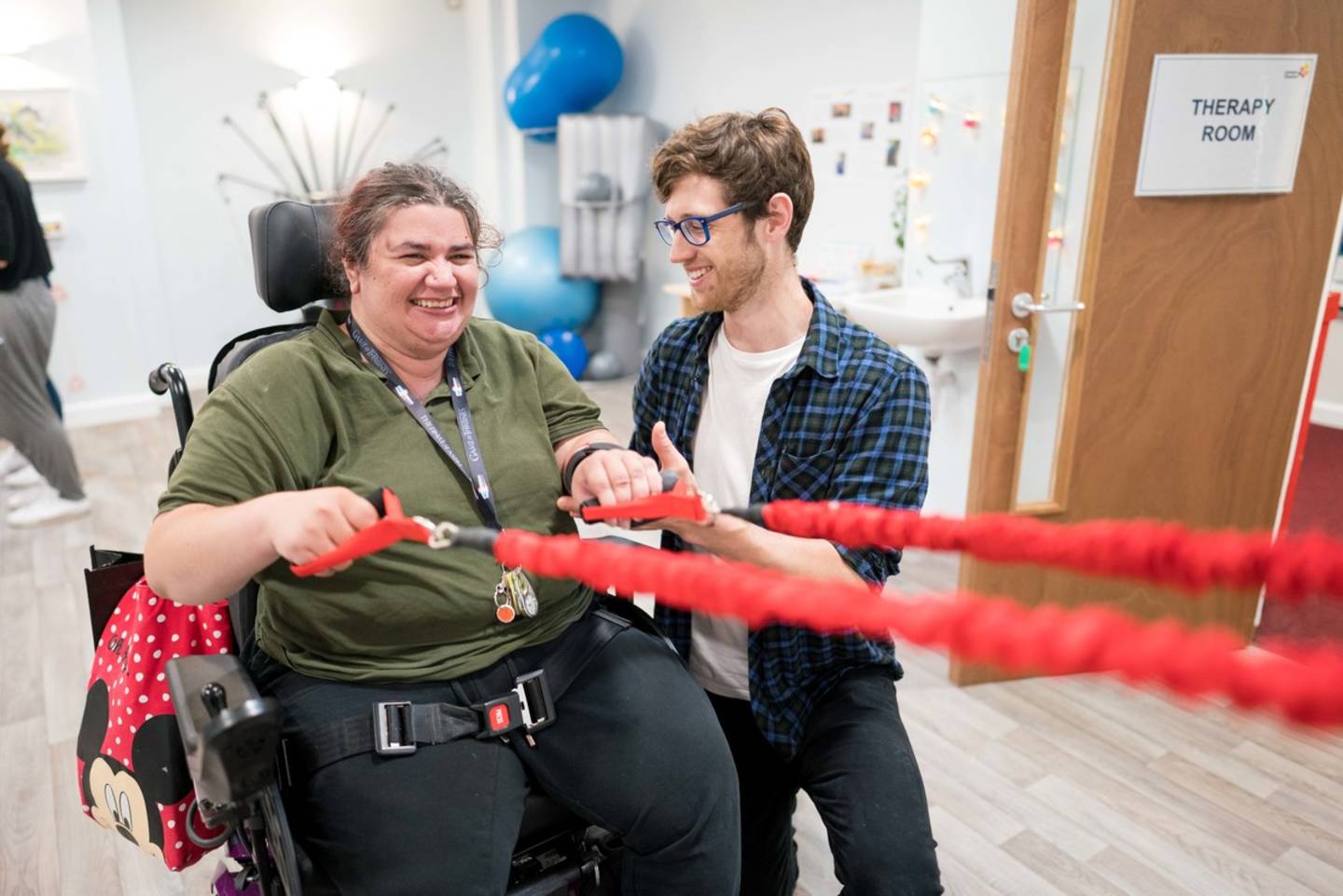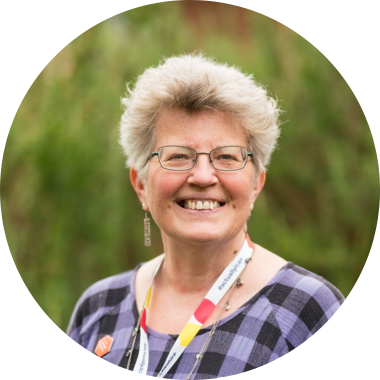Health feature: Lesley Gamm, Service Manager – Leonard Cheshire
Inequalities for disabled people and people with long-term health conditions have widened during the coronavirus pandemic. Many health organisations have adapted their approaches in an effort to minimise the negative impact and continue to support disabled people to be active during this time. Our latest feature hears from Lesley Gamm, Leonard Cheshire Service Manager for Gloucestershire House in Cheltenham.

 Tell us about Leonard Cheshire and how you support disabled people?
Tell us about Leonard Cheshire and how you support disabled people?
Leonard Cheshire supports individuals to live, learn and work as independently as they choose, whatever their ability. We supported over 70,000 disabled people globally in 2019/20. From inclusive education projects in Africa to work and employment programmes in the UK.
Sport and exercise play a part in our support. Either through specific opportunities for young disabled people in our ‘Can Do Sport’ initiative, or bespoke exercise plans for people that access our live-in services. 4,700 Leonard Cheshire staff provide care for 2,700 disabled adults in over 120 services across the UK.
Some of our services have developed a reputation for sporting activities. Greenhill House in Timsbury, Somerset, has a brilliant Boccia team. They reached the National Finals last year.
In what ways has Leonard Cheshire adapted their approach to keep disabled clients active during this time?
We’re adapting to virtual experiences like everyone else. A lot of our regular in-house activities have been facilitated online via iPads.
The highlight was probably some socially distant virtual tai chi! But this has been the case across Leonard Cheshire and I know that our Can Do Co-ordinators have been doing a range of sessions from dance to yoga and cheerleading! Can Do Sport is our skill development programme for disabled individuals or individuals with a long term-health condition aged 10-35.
How have you been keeping people active at Gloucestershire House and what impact has this had?
We are lucky to have some innovative therapy assistants who have been helping residents with a specialist walker and going outside for fresh air. Residents who can walk have been encouraged to do just that, either down the corridors with their crutches or a walking stick, or outside the service.
We have also enjoyed taking part in a ‘Route 66’ fundraiser, a huge 2,400-mile virtual cycle along the famous route in the USA. Residents who use a wheelchair are completing the challenge on static bikes and accessible trikes.
It is a big team effort with residents from three other Leonard Cheshire homes providing some extra pedal power. Symonds House in Hertfordshire, St Bridget’s in West Sussex and Fryers House in Hampshire are also racking up the miles.
To help maintain people’s mental health and wellbeing during lockdown, we have facilitated therapeutic art sessions, music clubs, current affairs quizzes, short film critiques, gardening and cooking sessions.
What challenges have you faced?
Simple wi-fi issues can be a challenge! And the fact that we are still in lockdown and everything must be done virtually – face to face interaction for physical activity is so important.
Why is it important has it been to keep your clients active and connected?
It is vitally important. The positive impact these activities have on our residents’ mental health and wellbeing during lockdown is conducive to their overall physical health.
Just having a basic level of wellbeing is essential. Greenhill House had a pie-in-the-face day to keep spirits up!
What do you think needs to change in healthcare so more disabled people can be active?
I think it would be beneficial if there were more proactive referrals to community groups. It can be difficult for people to pick up the phone and reach out for support, so passing on contact details to these organisations and allowing them to follow up would be massively beneficial. The Can Do Sport programmes we run are a good example of the types of activities available.
Find out more about Leonard Cheshire’s Can Do programme.
More on Leonard Cheshire
Leonard Cheshire’s new awareness campaign #ActuallyICan hears from disabled people achieving their goals. Find out more about the awareness campaign.
Support for healthcare professionals
Healthcare professionals often play a vital role in supporting disabled people and people with long-term health conditions to be more active. For lots of useful information on offering more inclusive activity, visit our enabling healthcare professionals page.